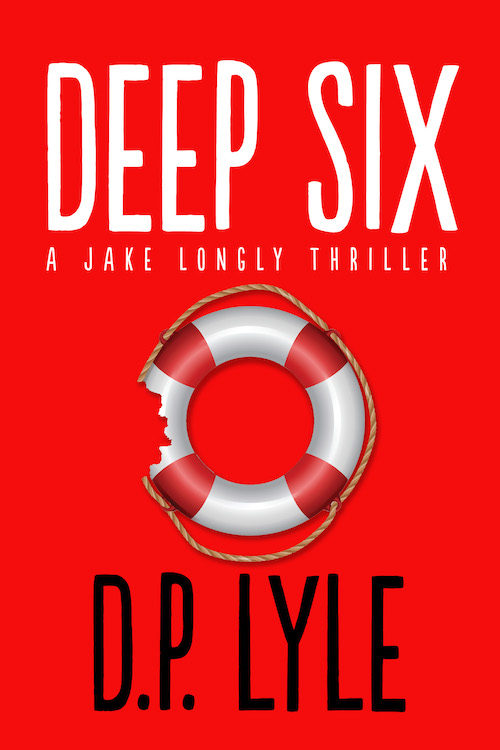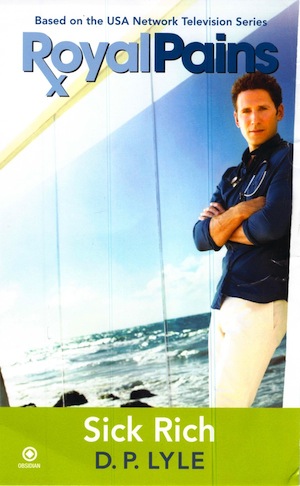I want to welcome back Jodie for a discussion of the all-important bad guys.
CREATING A WORTHY ANTAGONIST
by Jodie Renner
You’ve outlined a plot and created an appealing, complex protagonist for your thriller or other crime/action fiction — great start! But what about your antagonist? According to James N. Frey, “the villain is your best friend, because the villain creates the plot behind the plot — the plot that has to be foiled by the hero.”
The hero or heroine of your suspense novel needs a worthy opponent who is standing in his/her way and threatening other innocent people. As James Scott Bell says, “Without a strong opponent, most novels lack that crucial emotional experience for the reader: worry. If it seems the hero can take care of his problems easily, why bother to read on?”
And thrillers and other crime fiction need a downright nasty bad guy — but not a “mwoo-ha-ha” caricature or stereotype. If your villain is just a wicked cardboard caricature of what he could be, your readers will quickly lose interest. As Hallie Ephron says, “Characters who are simply monstrously evil can come off as old-fashioned clichés.”
To create a believable, complex, chilling villain, make him clever and determined, but also someone who feels justified in his actions. Ask yourself what the bad guy wants, how he thinks the protagonist is standing in his way, and how he explains his own motivations to himself.
How does your villain rationalize his actions? He may feel that he is justified because of early childhood abuse or neglect, a grudge against society, a goal thwarted by the protagonist, a desire for revenge against a perceived wrong, or a need for power or status — or money to fund his escape. Whatever his reasons, have them clear in your own mind, and at least hint at them in your novel. Like the protagonist, the antagonist needs motivations for his actions.
To give yourself the tools to create a realistic, believable antagonist, try writing a mini-biography of your villain: his upbringing and family life, early influences, and harrowing experiences or criminal activities so far. As Hallie Ephron advises us, “Think about what happened to make that villain the way he is. Was he born bad, or did he sour as a result of some traumatic event? If your villain has a grudge against society, why? If he can’t tolerate being jilted, why? You may never share your villain’s life story with your reader, but to make a complex, interesting villain, you need to know what drives him to do what he does.” Creating a backstory for your antagonist will help you develop a multidimensional, convincing bad guy.
Many writing gurus advise us to even make the antagonist a bit sympathetic. James Scott Bell says, “The great temptation in creating bad guys is to make them evil through and through. You might think this will make your audience root harder for your hero. More likely, you’re just going to give your book a melodramatic feel. To avoid this, get to know all sides of your bad guy, including the positives.”
Bell suggests that, after we create a physical impression of our antagonist, we find out what her objective is, dig into her motivation, and create background for her that generates some sympathy — a major turning point from childhood or a powerful secret that can emerge later in the book.
Not everyone agrees with that approach, however. James Frey, on the other hand, says “in some cases, it is neither necessary nor perhaps even desirable to create the villain as a fully fleshed-out, well-rounded multidimensional character.” Many readers just want to a bad guy they can despise, and are not interested in finding out about his inner motives or his deprived childhood. That would dilute our satisfaction in finally seeing him getting his just deserts.
Frey does feel it’s extremely important to create a convincing, truly nasty villain, one who is “ruthless, relentless, and clever and resourceful, as well as being a moral and ethical wack job,” and one who is “willing to crush anyone who gets in his way,” but doesn’t feel it’s necessary to give us a great deal of information on the villain.
As kids, we loved to see good prevail over evil, and the nastier the villain, the harder they fell — and the greater our satisfaction. Perhaps Frey’s “damn good villain” hearkens back to those times, and his ultimate demise evokes greater reader satisfaction. Forget analyzing the bad guy — just build him up, then take him out!
On the other hand, many readers today are more sophisticated and want to get away from the caricatures of our popular literary heritage… hence, advice from writers like Ephron and Bell to develop more multidimensional antagonists with a backstory and clear motivations.
I’d say there’s room for both approaches in modern fiction, and probably the thriller genre favors the “just plain mean and nasty” villain. Never mind the psychological analysis of the bad guy—we just want to see Jack Reacher, Joe Pike or [fill in your favorite thriller hero or heroine] kick butt!
What do you think? Make the villain nasty, evil and cruel through and through, or give him some redeeming qualities to make him more realistic? Show some of his background and motivations, or just stick with his current story goals and plans?
Resources:
Hallie Ephron, The Everything Guide to Writing Your First Novel
James N. Frey, How to Write a Damn Good Thriller
James Scott Bell, Revision and Self-Editing
Jodie Renner is a freelance manuscript editor, specializing in thrillers, romantic suspense, mysteries, and other crime fiction. Check out Jodie’s website at www.JodieRennerEditing.com and her blog, dedicated to advice and resources for fiction writers, at http://JodieRennerEditing.blogspot.com, as well as Crime Fiction Collective, of which she is a founding member.


























Terry Odell
October 20, 2011 at 1:41 pm
The best summary I got at a writer’s conference was that the villain has to believe he’s the hero of his story, which agrees with the points you’ve made.
Since I prefer a straight mystery rather than a suspense-oriented story, I rarely delve into the POVs of my villains, but I do have to know why they’re doing what they’re doing, even if my hero and heroine don’t.
LikeLike
Craig Faustus Buck
October 20, 2011 at 2:50 pm
My philosophy is that if I don’t enjoy the writing my readers won’t enjoy the reading. Starting from that perspective, my villains have to be fully fleshed or they’ll bore me. I don’t necessarily spend a lot of time, or any at all, revealing their backstory, but I have to know what their bg is to keep them true to character and to make their actions believable. This also helps me create story twists that might seem at first to come out of left field, but ultimately fall into place as the reader gets to know the antagonist.
LikeLike
Jodie Renner
October 20, 2011 at 6:15 pm
Thanks, Terry and Craig for your comments. Yes, even if you don’t reveal a lot about the background of your villain, having some idea yourself of why/how he got so twisted will help you create a multi-dimensional, intriguing, believable bad guy.
LikeLike
Jodie Renner
October 20, 2011 at 6:16 pm
And thanks to Doug Lyle for inviting me to post on his excellent blog again! It’s a great opportunity to expand the readership of my craft articles, and a real pleasure to be here.
LikeLike
RJ McDonnell
October 21, 2011 at 7:00 am
I find antagonists much more believable if I understand their motives. I always reveal bits of backstory in small doses throughout my novels to give my readers clues to their identity, or clues to eliminate other suspects.
LikeLike
M.E. Anders
October 21, 2011 at 9:51 am
I will immediately put down a book if I feel that the antagonist is evil – without a cause. Cardboard cutout alert. Since I love thrillers, I especially enjoy getting into the heads of the bad guy. I want to know the WHAT and WHY behind his actions.
Great post, Jodie.
LikeLike
Jodie Renner
October 21, 2011 at 10:27 am
Thanks for your comments, RJ and M.E. I feel the same way. I want to know a bit about why that character got so twisted, and what he’s thinking and planning, and why. Makes me even more worried for the protagonist!
LikeLike
Jodie Renner
October 21, 2011 at 10:30 am
And Terry, thanks for sharing that bit of advice you got at a writers’ conference: “The villain has to believe he’s the hero of his story.” Good one!
LikeLike
Author James W. Lewis
October 23, 2011 at 9:05 am
I believe multidimensional “bad guys” are more interesting. The best example that comes to mind is the X-Men series–Dr. Xavier (good guy) vs. Magneto (bad guy). Both men feel justified in their quest for equality, but have different approaches on how to go about it: One is more civil rights-oriented Martin Luther King-ish; the other is the by-any-means-necessary Malcolm X type. You never really feel Magneto is a true bad guy through-and-through, especially knowing his back story and how he was persecuted because of his mutant powers. You feel sympathetic to his plight, even if you don’t fully agree with him.
LikeLike
Jodie Renner
October 23, 2011 at 12:39 pm
Thanks for your thoughtful comment and example, James. I feel the same way as you do about that – make the antagonist multidimensional.
Of course, I still want to see the good guy win and the bad guy lose! I personally would be disappointed and angry if a novel I’d invested all that time in reading had the hero lose and the bad guy win. And that would also be a formula for very poor sales, I think.
LikeLike
Cornell DeVille
October 26, 2011 at 1:39 pm
What a great article, Jodie. You always hit the nail on the head. Thanks for sharing all your vast knowledge bank with the rest of us.
LikeLike
Jodie Renner
October 26, 2011 at 4:16 pm
Thanks, Cornell! I’m glad my researched articles are helpful to authors — we all gain when authors master various techniques to make their stories more compelling!
LikeLike
Missye K. Clarke
November 22, 2011 at 1:40 pm
Gotta disagree with the consensus: my villain in my first novel (which I’m two chapters from completing its 2nd draft) is a sorry SOB I instantly disliked. I based him on people I’ve known in my life–relatives and non alike–and there’s no way I’d want to get to know “how they ticked” to find out why my instinct took an instant, deep and far-reaching disliking to them so.
When I read this, I first thought, “yeah, sure, probe the darkest parts of the villain’s soul to get them ticking, find something redeeming about them.” But life doesn’t work that way, and I couldn’t bring myself to do it. Think about it: do you *really* want to learn what makes pedos tick, or why a serial killer like Dahmer ticked? Personally, it’s bad enough there’s evil in the world, but to find out WHY they are won’t change WHO they are. If you really dislike someone thoroughly, completely and through and through, do you want to probe them and find out why YOU dislike them? Not me. Your instincts know you better than you know yourself, and I maintain they don’t have to have a reason you don’t like someone at all on first meet. Besides, do you really want to learn about someone you *do* dislike? Again, not me, since life doesn’t work that way. So my villain here is just like this for my co-protagonist, but to my other co-protagonist, he got to know him a little and felt like a heel having to help end his life.
The only thing I know about my central villain in this book is he adores flowers, is bigoted to Blacks and women, is a Felix Unger-esque neat-freak and has albinism like me (and I didn’t know about the albinism thing until just this morning, hahaha). That’s all I need and *want( to know about him. His backstory, to me, isn’t relevant; as mentioned, there’s people in life you instantly dislike and you don’t WANT to know more about them, b/c it won’t change how you felt about them to start with. So I’m with Frey in this case: take out the holy f**ks and root for the bad Blue Meanies to be blown out of the space-time continuum. *smile*
LikeLike
Ben Fenton
March 2, 2012 at 2:41 pm
Well, I’m going to have a main antagonist who is nasty through-and-through, and his prodigy, who will be a complex antagonist with conflicting values which drive his unethical behavior. This came about organically as the story developed. Thanks for the article.
LikeLike
Jodie Renner
March 2, 2012 at 3:10 pm
Great, Ben! I can’t wait to read your story! 🙂
LikeLike
viktor frisk
January 21, 2014 at 8:30 am
My spouse and i ran in these pages about crash, amazingly, this can be a fantastic site. The positioning master has carried out an exceptional employment of setting it together, the data here is genuinely insightful. You may placed yourself a guarenteed target audience.
LikeLike